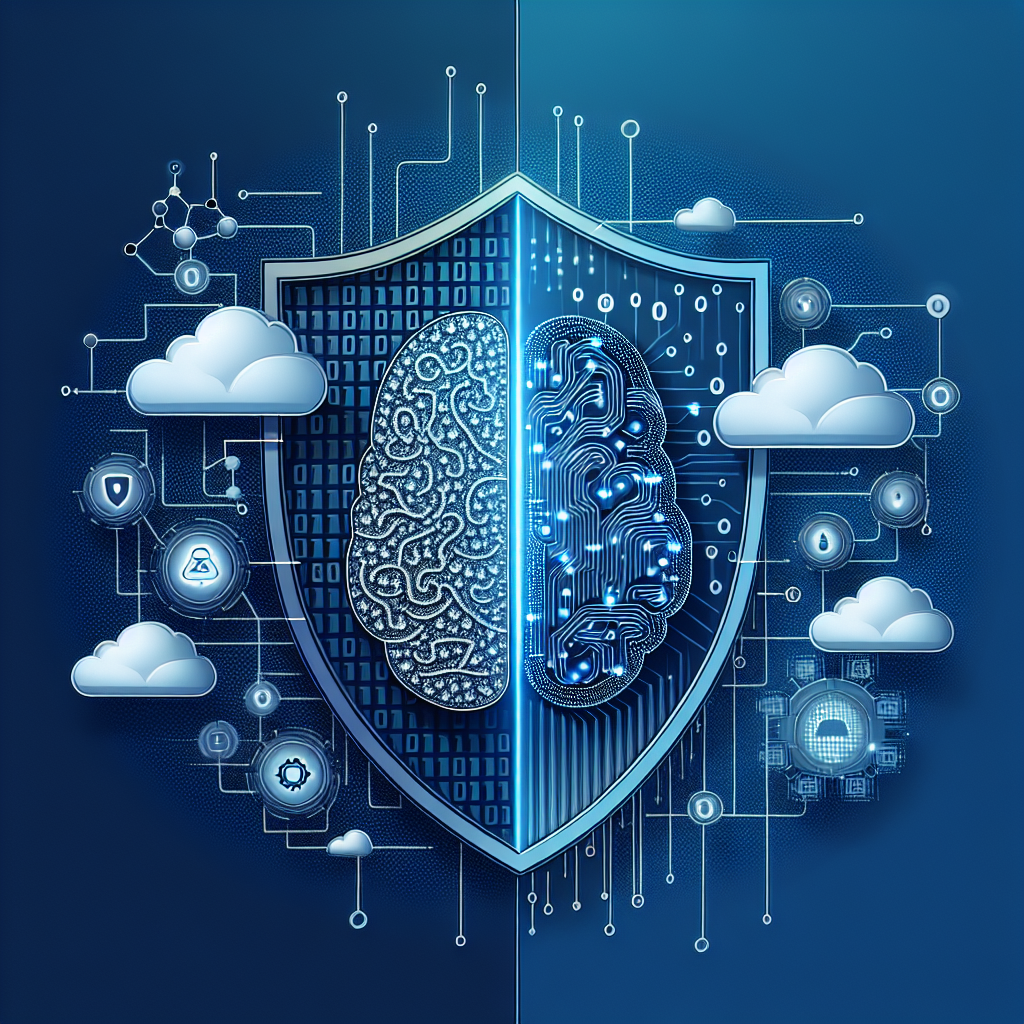In today’s digital age, the rise of artificial intelligence (AI) has revolutionized the way we live, work, and communicate. From self-driving cars to virtual assistants, AI is becoming increasingly intertwined with our daily lives. However, with the benefits of AI also come new challenges, particularly in the realm of cybersecurity.
Cybersecurity is a critical concern for individuals, businesses, and governments alike, as cyber attacks continue to grow in frequency and sophistication. The traditional methods of securing networks and data are no longer sufficient to protect against these evolving threats. This is where AI comes in. By harnessing the power of machine learning and automation, AI has the potential to significantly enhance cybersecurity defenses and better protect against cyber threats.
AI and cybersecurity: A powerful combination
AI offers a number of advantages when it comes to cybersecurity. One of the key benefits is its ability to analyze vast amounts of data at a speed and scale that is beyond human capability. This allows AI systems to quickly detect patterns and anomalies in network traffic, identify potential security threats, and respond in real-time to protect against attacks.
AI can also help to automate routine cybersecurity tasks, such as monitoring network activity, managing security alerts, and patching vulnerabilities. By offloading these tasks to AI-driven systems, cybersecurity professionals can focus their time and expertise on more strategic and high-value activities, such as threat intelligence analysis and incident response.
Furthermore, AI can improve the accuracy and effectiveness of cybersecurity defenses by reducing human error and bias. AI systems can continuously learn and adapt to new threats, making them more resilient to evolving cyber attacks. This proactive approach to cybersecurity can help organizations stay one step ahead of cyber criminals and better protect their sensitive data and assets.
Building a stronger defense together
While AI has the potential to enhance cybersecurity defenses, it is not a silver bullet solution. To effectively leverage AI in cybersecurity, organizations must adopt a holistic and collaborative approach that combines AI technology with human expertise and best practices. Here are some key strategies for building a stronger defense against cyber threats using AI:
1. Invest in AI-powered cybersecurity tools: Organizations should invest in AI-powered cybersecurity tools that can help to automate routine tasks, detect and respond to threats in real-time, and improve overall security posture. These tools can include AI-driven threat intelligence platforms, behavior analytics systems, and vulnerability management solutions.
2. Train cybersecurity professionals in AI: To effectively leverage AI in cybersecurity, organizations should provide training and education to cybersecurity professionals on how to use AI tools and technologies. By building AI expertise within their teams, organizations can better integrate AI into their cybersecurity operations and maximize its impact.
3. Collaborate with AI vendors and researchers: Organizations should collaborate with AI vendors and researchers to stay abreast of the latest AI technologies and developments in cybersecurity. By partnering with experts in the field, organizations can gain valuable insights and guidance on how to effectively implement AI in their cybersecurity strategies.
4. Implement a multi-layered defense strategy: AI should be integrated into a multi-layered defense strategy that combines AI-powered tools with traditional security measures, such as firewalls, antivirus software, and intrusion detection systems. This layered approach can provide greater protection against a wide range of cyber threats and reduce the risk of a successful breach.
5. Monitor and evaluate AI-driven systems: Organizations should continuously monitor and evaluate their AI-driven cybersecurity systems to ensure they are performing as expected and effectively mitigating threats. Regularly assessing the performance of AI systems can help organizations identify any weaknesses or vulnerabilities that need to be addressed.
Frequently Asked Questions (FAQs)
Q: Can AI completely replace human cybersecurity professionals?
A: While AI can automate routine cybersecurity tasks and enhance overall security defenses, it cannot completely replace human cybersecurity professionals. Human expertise is still essential for strategic decision-making, threat analysis, and incident response. AI should be viewed as a complementary tool that can augment human capabilities and improve overall cybersecurity effectiveness.
Q: How can AI help to detect and respond to cyber threats?
A: AI can help to detect and respond to cyber threats by analyzing vast amounts of data in real-time, identifying patterns and anomalies indicative of potential threats, and taking automated actions to mitigate risks. AI-powered systems can continuously learn and adapt to new threats, making them more effective at detecting and responding to cyber attacks.
Q: What are some of the challenges of implementing AI in cybersecurity?
A: Some of the challenges of implementing AI in cybersecurity include the complexity of integrating AI systems with existing security infrastructure, the need for specialized AI expertise within cybersecurity teams, and concerns about the potential for AI bias and false positives. Organizations must carefully consider these challenges and develop a comprehensive strategy for effectively leveraging AI in cybersecurity.
Q: How can organizations ensure the ethical use of AI in cybersecurity?
A: Organizations can ensure the ethical use of AI in cybersecurity by implementing robust governance and oversight mechanisms, promoting transparency in AI algorithms and decision-making processes, and adhering to ethical principles and guidelines for AI development and deployment. By prioritizing ethical considerations, organizations can build trust with stakeholders and mitigate potential risks associated with AI in cybersecurity.
In conclusion, AI has the potential to revolutionize cybersecurity defenses and better protect against cyber threats. By leveraging the power of AI technology, organizations can enhance their security capabilities, automate routine tasks, and stay ahead of evolving cyber attacks. However, to effectively harness the benefits of AI in cybersecurity, organizations must adopt a collaborative and strategic approach that combines AI technology with human expertise and best practices. By building a stronger defense together, organizations can better safeguard their sensitive data and assets in an increasingly complex and challenging threat landscape.

